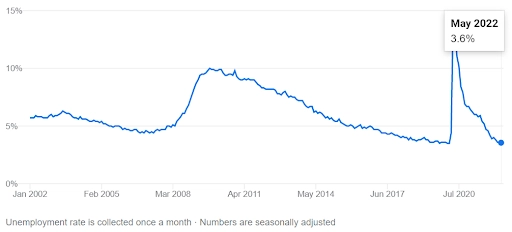
With unemployment holding at record lows – but a potential recession sitting over the horizon – companies are faced with a tricky paradigm: be able to attract, retain and motivate their workforces in the current “war for talent”, but stay agile enough to be able to respond to potential future macro challenges.
To help chart a course, companies are taking a hard look at their total rewards strategies to ensure they are structured appropriately, often with assistance and support of external, third-party compensation consulting expert. When a company embarks on an overhaul effort, the first question leadership must solve is whether or not they need a compensation consultant and how to go about selecting a firm to partner with.
Why Use a Compensation Consultant?
A successful total rewards strategy requires consideration of many factors that seem to evolve on a whim in today’s hyper-competitive marketplace. Staying abreast of these trends is a full-time job, and company leaders already have their hands full running their businesses day to day.
We live and breathe compensation.
Independent compensation consultants, however, are primarily focused on these issues, identifying, interpreting, and translating total rewards trends into actionable insights for their clients on a daily basis. They leverage years of experience and knowledge to deliver strategic guidance enabling clients to create and maintain tailored compensation strategies and pragmatic, value-linked solutions.
So when should a company consider hiring an independent compensation consultant? There are a number of circumstances that require, or could benefit from, engaging a consultant.
Consultants can help companies:
- Satisfy new requirements in corporate governance (e.g. CEO Pay Ratio disclosure)
- Respond to pressures from institutional investors, proxy advisory firms, regulatory bodies, etc. on compensation program design
- Stand up new short-term incentive and/or long-term incentive plans
- Ensure pay equity throughout the organization
- Establish thoughtful retention-oriented incentives in times of volatility (recession, bankruptcy, etc.)
- Establish market competitive employment contracts and severance provisions
- Mitigate potential excise tax liabilities stemming from 280(g) and change in control transaction scenarios
- Navigate compensation-related litigation through litigation support services
Compensation consultants bring valuable experiences to a multitude of situations. The best firms can provide expert, tailored advice on compensation strategies that support a company’s key strategic initiatives over the short and long term.
How Do You Choose the Right Compensation Consultant?
There are a wide range of consulting firms companies can choose from, with differentiating attributes ranging from proprietary technologies to industry-specific datasets. That said, there are an increasing number of data platforms available across today’s corporate information marketplace that are “democratizing” the data portion of the consulting equation.
As a result, we often hear from clients that the best attribute an outside advisor can bring to a client is the ability to blend benchmarking data into actionable guidance that supports their best assets – their human capital and strategic plans. But how do companies ensure they are selecting the right consulting partner?
It’s critical companies choose the right compensation consulting partner when getting started, as such relationships require ample investments of time, dollars and trust to work correctly. We recommend companies consider a number of factors when running their due diligence efforts on potential partners:
Understand your business’ needs
A solid understanding of the needs of your business can help you identify the right partner. Different circumstances necessitate different partners – specific industry expertise, strategic transactions, tailored incentive plan design, etc.
Note: A consulting firm with the right expertise to solve your needs will cost you less in time and dollars at the end of the day.
Set the parameters for the consulting relationship
Clear guidelines will help you identify the right partner. Budgets, project timelines, start dates, and workflows are just a few of the guidelines that can help identify the best fit.
Evaluate engagement team credentials
Consulting firms are often staffed with professionals that have varying degrees of experience and skill sets. The most strategic firms will identify the right team assets to support your engagement needs. It is important for companies to evaluate the proposed team’s expertise and references before choosing a partner.
Have a tough challenge stemming from new market dynamics with limited precedent? Be sure to check with a lead consultant’s references to better understand their ability to think outside the box!
Know their approach
Consulting firms’ lead consultants have decades of experience in honing their elevator pitch. When evaluating potential partners, pay particular attention to how a consulting firm proposes to approach the potential new engagement.
The right approach goes a long way in enabling a more collaborative process across all stakeholders in the compensation setting process – the board, management, and outside advisor. Zayla’s approach, is designed to facilitate achievement of a client’s end goals – this process has been tested and refined in over two decades of engagements with clients of various sizes and in various industries.
Test responsiveness
Today’s marketplace is hyper-competitive – for a company with a human capital risk, every day before a solution is implemented is critical. Consultant responsiveness in the initial business development phase can be a good indicator of how responsive they will be during the actual engagement.
The burnout that has plagued the professional services industry over the last couple of years has been well-documented – the compensation consulting world has not been immune to it.
Establish a partnership based on open communication
The best consultants serve as strategic partners to all stakeholders in the compensation setting process – regardless of who the engaging party is. To ensure the most efficient path to engagement success, companies need to support a “three-legged stool” partnership with the consulting partner. The consultant should engage in open and transparent communications with both management and the board throughout the process (as appropriate).
This transparency should be present in both the communications and deliverables from the consultant – “black box” reports that withhold key underlying data generally create more problems than solutions. We find that clarity in communication is a critical input in the engagement process – without it, clients can have a tough time getting buy-in on solutions from all observers.
At the end of the day, companies should seek advisers for their firms. Leveraging the above guidance will better position companies to identify the right consulting partner that will create strategic compensation solutions that support your endgame.



